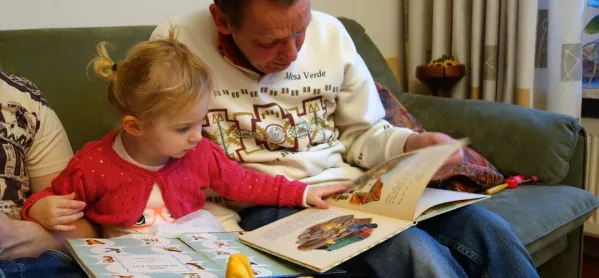Everyone knows how much children like brightly coloured picture books. But these books are, in fact, hindering children’s vocabulary learning, a new study shows.
Children who see more than one illustration at a time do not learn new words from storybooks, according to the research by psychologists at the University of Sussex.
The academics read to early years pupils from books with only one illustration per double page, and also from books with illustrations on both left and right pages of the spread. The illustrations introduced the children to new objects, named on the page.
The researchers found that children who were read stories with only one illustration per double page learned twice as many words as those who were read books with two illustrations at a time.
Picking up more words
Zoe Flack, one of the authors of the paper, said: “Children who are too young to read themselves don’t know where to look, because they are not following the text. This has a dramatic impact on how well they learn new words from stories.”
In a follow-up experiment, researchers used a hand-swipe gesture, to guide the children to look at the relevant illustration before the text was read out. They found that this was an effective way of ensuring that children were able to learn new words from books with two illustrations on a page.
“By giving children less information at once, or guiding them to the correct information, we can help them learn more words,” Ms Flack said.
Jessica Horst, the co-author of the paper, said that previous studies have shown that adding lift-up flaps and anthropomorphic animals to storybooks also decreases learning.
She suggests that the new study has significant implications for the e-book industry, as many e-books only present one illustration at a time.
Want to keep up with the latest education news and opinion? Follow Tes on Twitter and like Tes on Facebook.




